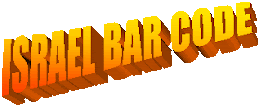Hobbies and interests – is there a place for them on your resume?
There are two types of resumes: chronological and functional. As its name implies, a chronological resume is one that lists your experience and education in order, starting with the most recent jobs or achievements. This type of resume is sometimes also referred to as reverse chronological resume, because the order of the listing starts with your current employment. Functional resumes focus on your qualifications, not your career timeline. This style of the resume highlights what skills you have, rather than where and when you acquired or utilize them. In other words, instead of listing your experiences by your job titles, your resume will contained sections titled by your skills such as verbal and written communication, customer satisfaction, project management, etc.
The functional resume style is recommended for college students seeking internships or their first jobs out of college, for those with no professional experience, those who have not worked for some time, or for career changers. This resume style allows you to reference your hobbies and interests in a way that apply to your career objective only; listing hobbies and interests outside of your career objective is not recommended as it doesn’t promote you as a professional in any way.
Any time you are composing a resume, it is important to keep in mind your career objective. You want to present yourself in a best possible light to your potential employer. Thus, the information on your resume has to answer one question: Why are you the best candidate for the job?
The biggest mistake people make on their resumes is including information that is not related to their professional experience. Facts pertaining to your volunteer positions, community work, interests and hobbies that disclose your race, ethnicity, gender, age, sexual orientation, religious beliefs or any personal descriptors that do not directly impact your professional performance must be excluded from your resume. The functional resume does not require you to list names or organizations you have worked or volunteered for; thus, you can list the experience you have acquired there without potentially disclosing any demographic information. Additionally, don’t create a separate section on your resume for hobbies and interests. This is typically seen as amateur, and gives your resume less credibility.
Listing hobbies and interests as they apply to the position you are applying for should be done under specific functional sections. For example, if you are seeking a position in graphic design, and have samples of work that you have done as a hobby, indicate this fact on your resume or in your cover letter. If your hobbies are related to the type of work you are seeking utilize them to your advantage. If you have read books or completed seminars at the community center that are applicable to your job, make a mention of them. Any employer will welcome the opportunity to have you demonstrate the qualifications that make you a perfect candidate for the job.
As a final step, have a friend review your resume, or if you are a college student, seek assistance from a career center at your school. Having another person review your resume will help uncover any items that may raise questions about your experience or education, as well as address if the inclusion of your hobbies and interests works to support your career objective. Perfecting your resume will assure that you show your potential employer that you are the best candidate for the job.
There are two types of resumes: chronological and functional. As its name implies, a chronological resume is one that lists your experience and education in order, starting with the most recent jobs or achievements. This type of resume is sometimes also referred to as reverse chronological resume, because the order of the listing starts with your current employment. Functional resumes focus on your qualifications, not your career timeline. This style of the resume highlights what skills you have, rather than where and when you acquired or utilize them. In other words, instead of listing your experiences by your job titles, your resume will contained sections titled by your skills such as verbal and written communication, customer satisfaction, project management, etc.
The functional resume style is recommended for college students seeking internships or their first jobs out of college, for those with no professional experience, those who have not worked for some time, or for career changers. This resume style allows you to reference your hobbies and interests in a way that apply to your career objective only; listing hobbies and interests outside of your career objective is not recommended as it doesn’t promote you as a professional in any way.
Any time you are composing a resume, it is important to keep in mind your career objective. You want to present yourself in a best possible light to your potential employer. Thus, the information on your resume has to answer one question: Why are you the best candidate for the job?
The biggest mistake people make on their resumes is including information that is not related to their professional experience. Facts pertaining to your volunteer positions, community work, interests and hobbies that disclose your race, ethnicity, gender, age, sexual orientation, religious beliefs or any personal descriptors that do not directly impact your professional performance must be excluded from your resume. The functional resume does not require you to list names or organizations you have worked or volunteered for; thus, you can list the experience you have acquired there without potentially disclosing any demographic information. Additionally, don’t create a separate section on your resume for hobbies and interests. This is typically seen as amateur, and gives your resume less credibility.
Listing hobbies and interests as they apply to the position you are applying for should be done under specific functional sections. For example, if you are seeking a position in graphic design, and have samples of work that you have done as a hobby, indicate this fact on your resume or in your cover letter. If your hobbies are related to the type of work you are seeking utilize them to your advantage. If you have read books or completed seminars at the community center that are applicable to your job, make a mention of them. Any employer will welcome the opportunity to have you demonstrate the qualifications that make you a perfect candidate for the job.
As a final step, have a friend review your resume, or if you are a college student, seek assistance from a career center at your school. Having another person review your resume will help uncover any items that may raise questions about your experience or education, as well as address if the inclusion of your hobbies and interests works to support your career objective. Perfecting your resume will assure that you show your potential employer that you are the best candidate for the job.



No comments:
Post a Comment